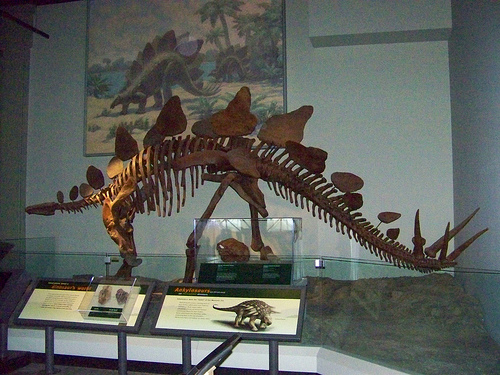Date Printed: May 27, 2011
By Paul Esau (The Cascade) – Email
 The Cascade has several articles this week about the changing nature of media in our modern world. Whether in chronicling the swift decline of the soap opera (Nick Ubels 12), or discussing the changing roles of libraries (Amy Van Veen 6), it is easy to see the ways in which human modes of communication are evolving, adapting, and improving (hopefully). What is perhaps harder to recognize is the relentless acceleration of change in our culture, a process driven by ever more fickle consumers armed with infinite options, and the irritating knowledge that true entertainment is only one more click away.
The Cascade has several articles this week about the changing nature of media in our modern world. Whether in chronicling the swift decline of the soap opera (Nick Ubels 12), or discussing the changing roles of libraries (Amy Van Veen 6), it is easy to see the ways in which human modes of communication are evolving, adapting, and improving (hopefully). What is perhaps harder to recognize is the relentless acceleration of change in our culture, a process driven by ever more fickle consumers armed with infinite options, and the irritating knowledge that true entertainment is only one more click away.
For example, before it’s grand exit next fall, the soap Days of Our Lives will have run for over 40 years, entertaining several generations of viewers. In an age where few programs run for more than a couple of seasons, the sheer longevity is astounding. Will American Idol make it to 40? How about Jersey Shore? What do we watch, what do we read, what do we listen to that will endure through a year, five years, a decade? Why is it that both in our technology and our entertainment, change is progressing at a rate unprecedented in recorded history? And at what point do we, as consumers, decide our world is changing too fast, that we can no longer keep up?
The question hits close to home for those of us in the newspaper business, trying to keep alive a print tradition in a society increasingly dominated by other mediums. How can a traditional newspaper compete with the instantaneous transfer of information available through Twitter or Facebook, or the domination of television as the primary source for news? Have we been left behind, the stegosaurus of the news world? Have we been out-paced, out-evolved, unable to change fast enough for the requirements of our newer, more dynamic society?
The answers to these questions are not mine to provide, although my allegiances should be easy to discern. The Western news tradition was founded in hot type and smudging ink, and the legacy of print news suggests that it will not “go easy into that good night,” nor should it. In fact, the very thing that separates print news from its electronic counterpart is probably its biggest asset. A newspaper functions as a newspaper and will continue to fulfill its function even without batteries, motherboards, Wi-Fi, or monitors. It can be touched, it can be folded, it can be clipped and stored in a drawer, it can endure beyond the opening of a tab or the closing of a window. It provides an element of stability in a fluctuating, changing world, and that, I think, should not be underestimated.


